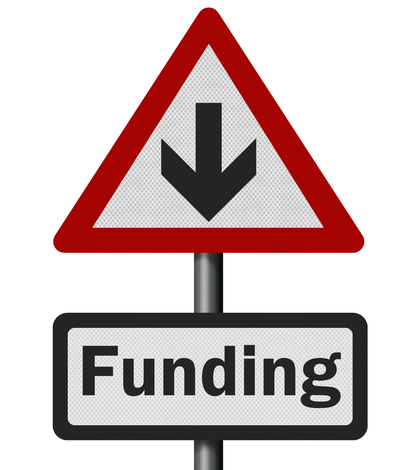The non-profit entity, which helps start-ups and existing business, doesn’t like the proposed budget cuts coming from the Trump Administration. On the other hand, this is still a good time to start a small business, says the man in charge of the agency.
Vincent McCoy, director of the Inland Empire Small Business Development Center, is a little on edge about his agency’s funding.
In his first budget, President Trump has proposed cutting spending in most government departments, including the U.S. Small Business Administration, from which the Inland Empire SBDC receives approximately $560,000 every year.
Specifically, Trump wants to reduce the SBA’s annual budget by about five percent, to approximately $826.5 million a year. That would be a cut of about $43 million, according to published reports.
“I am concerned,’” said McCoy, who has been in charge of the non-profit agency since 2002, two years after he began working for it as a consultant. “The problem is that we don’t know exactly what’s going to happen. There’s a lot of uncertainty out there.”
The Inland Empire SBDC has multiple sources of donations in the private and public sectors, including several prominent banks. Like all small business development centers in California, the Inland Empire office gets its state funding from the Governor’s Office of Business and Economic Development, better known to the public as GO-Biz.
In California, small business development centers get about 12 cents from the state for every dollar they get from the federal SBA. In Texas, that figure would be closer to $3.50 for every $1, according to McCoy.
Those calculations are based on the $1.5 million to $2 million Go-Biz spreads among the state’s approximately 40 small business development centers every year. If the state were to come up with another $4 million or so every year, its small business development centers would remain on solid financial ground, McCoy said.
“It’s different in every state,” McCoy said of the Inland Empire development center, which has an annual operating budget of $1.2 million and is part of the Inland Empire Center for Entrepreneurship at Cal State San Bernardino. “Forty six of the 50 states basically match the amount of money they get from the federal government, but unfortunately it doesn’t work that way in California.”
Raising the extra funding should not be an issue.
“Another $4 million or $4.5 million is peanuts,” McCoy said. “In California, that’s what you spend on paperclips.”
Founded in 1991, the Inland Empire Small Business Development Center is part of the Orange County/Inland Empire Small Business Development Network. It has offices in Ontario, Riverside and Victorville.
Like all small business development centers, the Inland Empire Center is overseen by the U.S. Small Business Administration, which was created in 1953.
The federal small business center defines a small business as one with less than 500 employees, but the Inland Empire office seldom works with any business that has more than 50 workers, McCoy said.
Small business development centers help start-ups and existing businesses improve and become more competitive. They provide a number of services, including financing, advice on planning and development and background on marketing and social media information.
They can also help arrange contracts with government and corporate entities, according to the development center’s website.
“We help people get attorneys and accountants, things that small businesses have a hard time paying for,” McCoy said. “It helps them compete with larger businesses.”
When working with start-ups, a development center usually helps arrange financing, often a difficult task because banks tend to be reluctant to lend to new businesses.
When working with an established business, the goal is to increase sales by adding more space, more employees, or both.
The small business development center provides classes that explain how to secure start-up funding, then helps arrange that funding, said Robert Durant, founder and co-owner of Inland Wharf Brewing Co. in Murrieta.
After completing those courses, Durant was able to secure a $250,000 loan from the SCE Federal Credit Union and open his microbrewery in January.
“Getting a loan for a new business is not easy but they were able to do it,” said Durant, a formal Naval officer who for years wanted to own his own business. “We’re making beer and we have customers to sell it to. I don’t think we’d be in business without the small business development center.”
Despite some economic uncertainty, this is still good time to start a small business.
“Interest rates are low, capital is available, the economy is doing well and there are fewer barriers than ever to starting a business,” McCoy said. “You can start a new business just using your cell phone.”
 IE Business Daily Business news for the Inland Empire.
IE Business Daily Business news for the Inland Empire.


